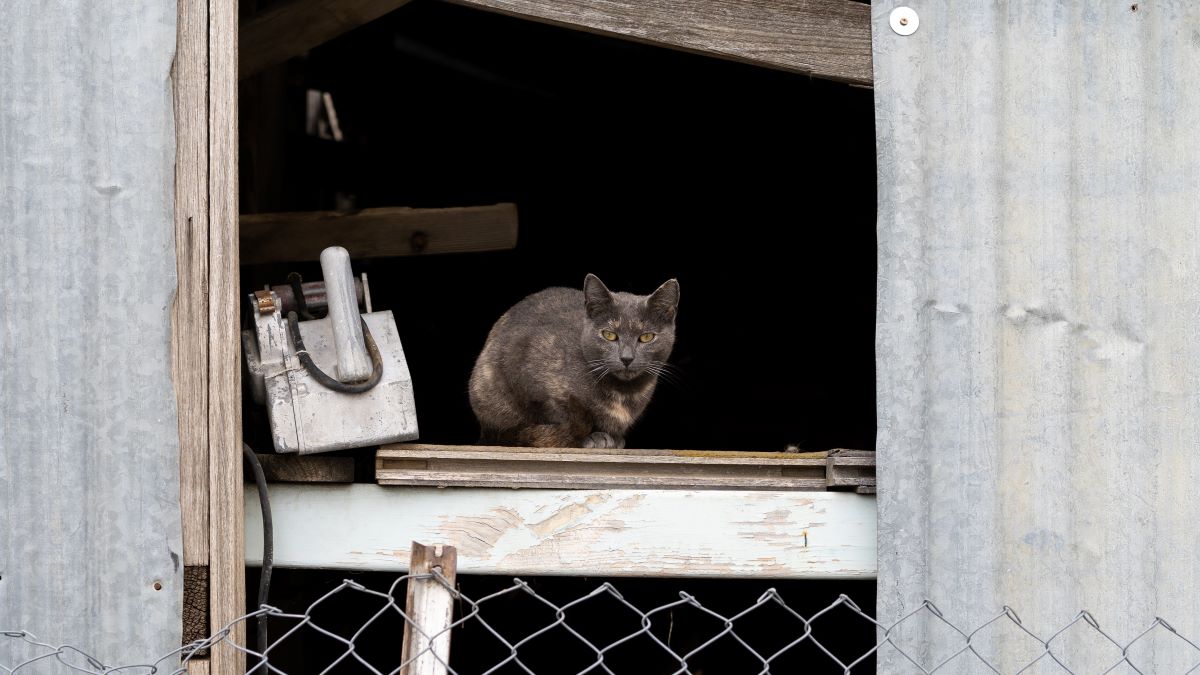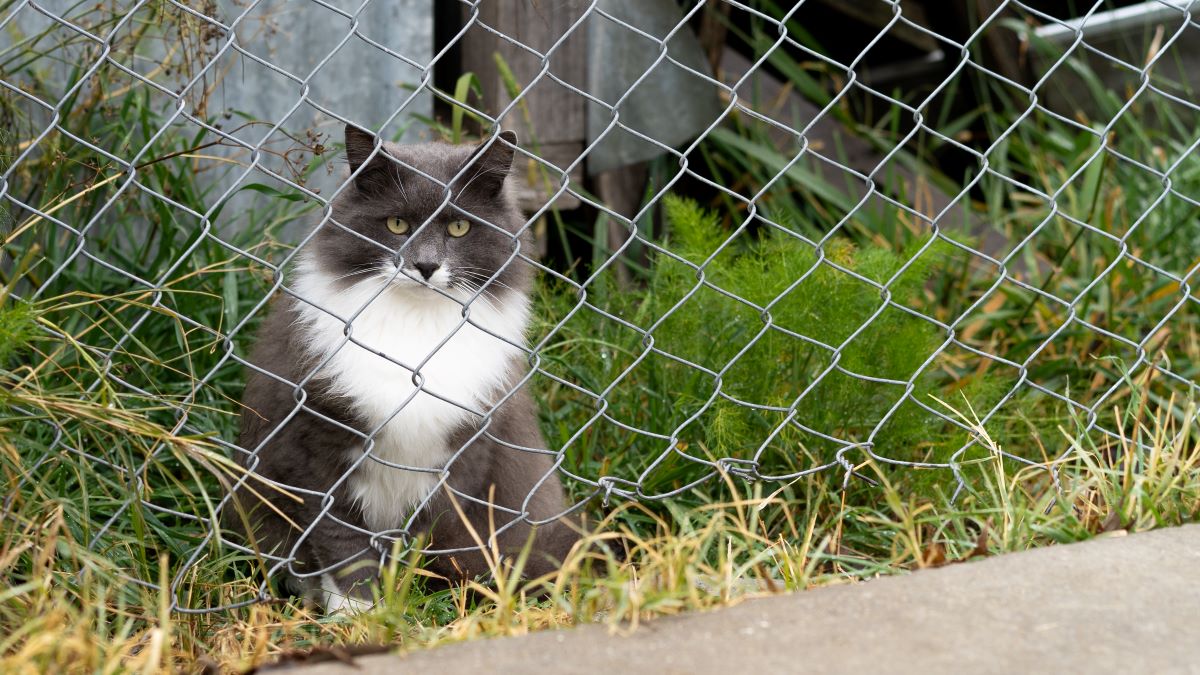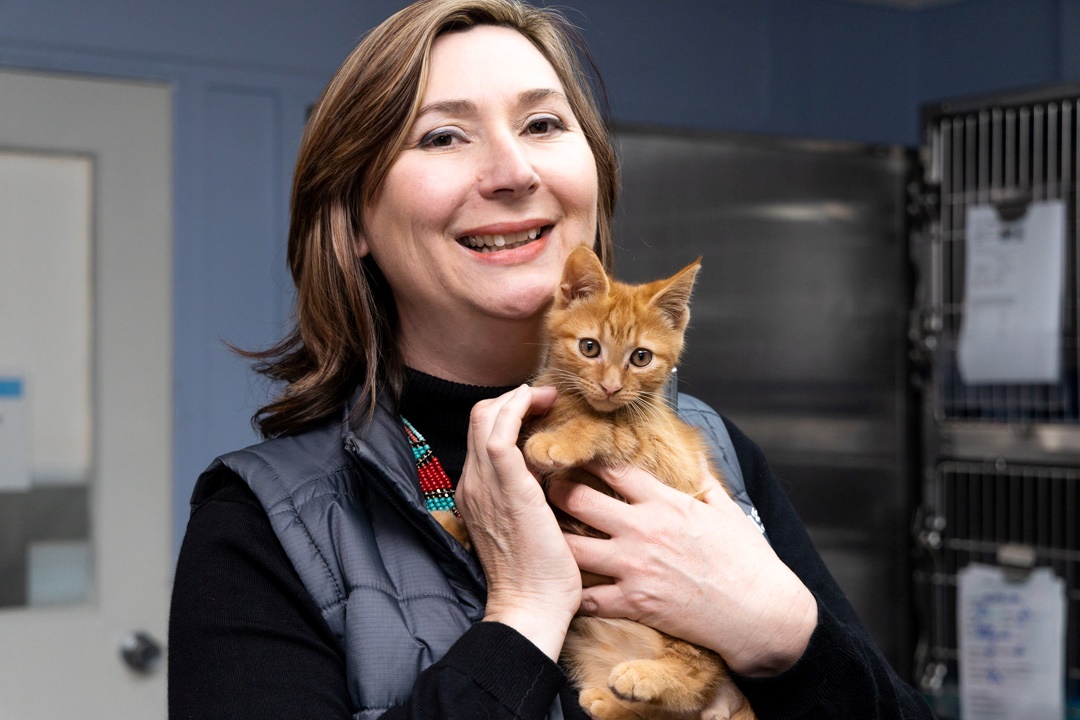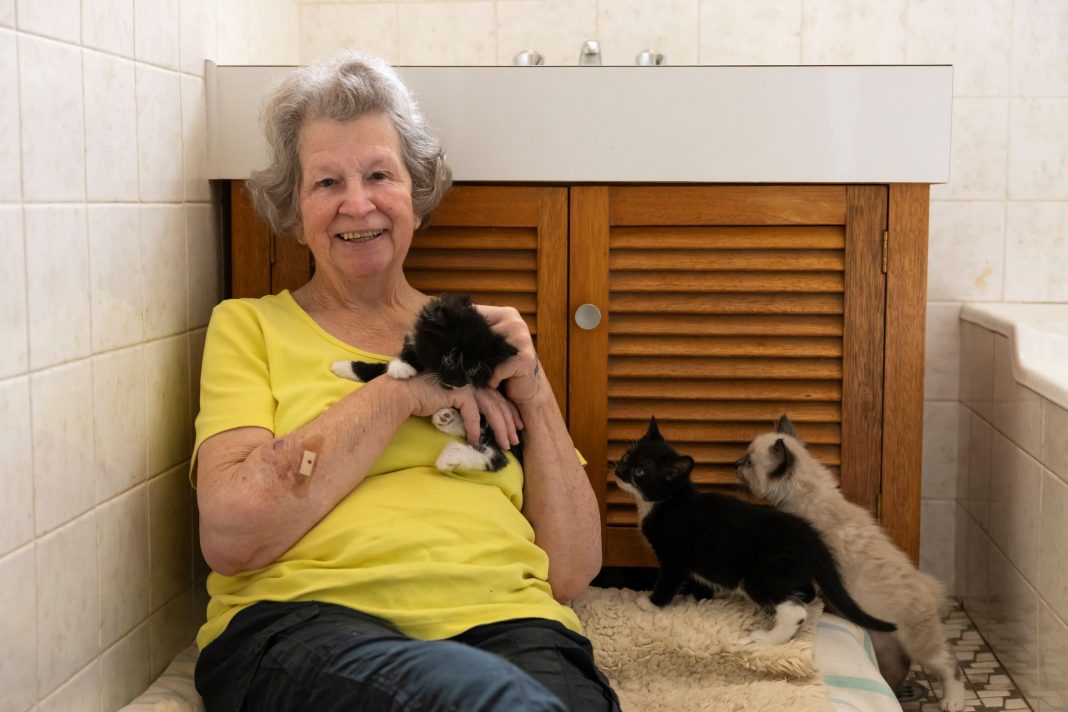If a hungry-looking stray cat is hanging around, you might feel like you are being kind by offering it a meal – but are you doing the best thing for that cat? Canberra cat welfare enthusiasts believe that perhaps the kind thing isn’t always best when it comes to hungry strays.
Back in March, Brenda Colbourne, founder of ACT Cat Rescue and Rehoming, offered to help someone who had been feeding a pregnant homeless cat. Shortly after the pair started the process of setting up a routine, the original person wanted to be less involved, only feeding occasionally.
“You can’t keep feeding when you’re not taking responsibility for the outcome that cat’s kittens will get. They’re not easy to domesticate after the age of 12-13 weeks,” says Ms Colbourne.
Over the next six months, she managed to catch all but one kitten (which is being cared for by a local family) and the mother.
“Once I make a commitment, I will follow through on that commitment, I don’t just abandon it. Sometimes, working on your own is a lot easier … I kept going, when I had traps set, I might go two or three times [a night],” says Ms Colbourne.
Unfortunately, the mother was already pregnant again, as was one of the kittens. Both needed rehabilitation to be handled, something Ms Colbourne was able to achieve before either gave birth.
Mother cat went into labour one morning delivering one kitten normally before it was apparent something was wrong; a kitten was stuck. Ms Colbourne, a retired nurse with midwifery experience, could tell all was not right and rushed the cat in for an emergency caesarean. Luckily, mum and her litter of four all made it.
When the kitten went into labour, she was unable to proceed with a natural delivery and had to be rushed for a caesarean as well, where four kittens were delivered. Due to complications, the mother didn’t survive, and in her absence, two kittens died in the first few days.
“They were higher risk because it was a traumatic birth. Unweaned orphans at day olds are high risk of not surviving – it doesn’t matter how well and how experienced you are at raising.”
Ms Colbourne says it is rare for a mother and kitten to both require emergency intervention, let alone weeks apart. She says if she hadn’t been there to fulfil her duty of care to the animals, 10 cats would have died without any care afforded to them.
“They need to be well looked after, well fed, vet worked, regular vet treatment if it is needed, and a home that will look after them properly, a safe, loving home.”
Doing what she can with the resources she has, Ms Colbourne is a self-funded one-woman show. She catches stray cats on private land and either drops them off to RSPCA ACT or takes them back to her house to be cared for ahead of finding a forever home.
“They get fully vet worked and they get put up for adoption. Those who have long-term health complications, people won’t take them on, I accept that, so they stay with me,” she says.


Over the past 30 years, Ms Colbourne has helped home hundreds of stray cats and kittens but says it isn’t about numbers or statistics, it’s about the quality of care the cats receive. Wanting to see all cats in homes, she says getting them off the streets is the best outcome for everyone.
“It prevents a lot of diseases being spread that can cause cats to die; it prevents dog attacks on cats in which they then get killed; it also prevents car accidents where they get killed; it’s cleaner for the environment because the excrement is contained; and you have a cat that lives longer.”
Ms Colbourne fears that this year’s kitten season will be one of the worst, and without dedicated people like her, the future for many of these colony cats looks bleak.
If a cat without a home has a regular food source provided by a human, they will likely stay in the area. If that cat and others around have not been neutered or spayed, they are likely to multiply and form what is known as a colony.
“The father of the kittens might mate with the kittens, or the brothers might mate with the sister or the mother, and you then get inbreeding which results in the most horrific health issues,” says Ms Colbourne.
CEO of RSPCA ACT Michelle Robertson, says “it is possible for a single cat to produce three to four litters during one kitten season. With a litter usually being four to six kittens, a single cat may have up to 24 kittens per year.”
According to Ms Robertson, there are significant causes for concern when it comes to the welfare of cats living in colonies. These include health issues, injuries, infections and diseases due to fights amongst the cats, lack of preventive measures for fleas, zoonotic diseases like ringworm and other infections like cat flu. Colony cats in some instances can also predate on wildlife and smaller pets such as birds.

“Another big concern is cats being struck by motor vehicles and sustaining injuries that leave them suffering, and if untreated, leads to a painful death,” she says.
Both Ms Robertson and Ms Colbourne agree that the RSPCA ACT is the best place to bring a stray. If that isn’t possible or you suspect the cat might have an owner, they suggest taking it to a local vet where they can check for a microchip.
In the past three months, before kitten season had even officially begun, RSPCA ACT had already taken in 173 stray cats. Ms Robertson says it is important that we, as a community, work together to call for responsible pet ownership where cat owners can keep their cats contained and ensure they are microchipped and spayed or neutered.
“In an ideal world, we would like to see every cat owned, looked after, and contained in a home environment. To get there will require the whole community working together and I understand that this may take us many years, however, we do need to make a start,” she says.
Practical moves that can be made now include checking if a stray cat belongs to a neighbour, owners containing their cats, and bringing unowned cats into the RSPCA ACT shelter at Weston.
“If circumstances allow, the best thing to do is to ‘adopt’ the unowned cat and give the cat a home while ensuring that this cat is spayed and won’t continue the cycle of breeding,” says Ms Robertson.
The RSPCA ACT team asks that any pregnant cats be brought straight to their shelter. If the finder is interested in adopting the mother cat or a kitten, that can be arranged with the team. They also ask that all mobile kittens with their eyes open be brought in.
“If their eyes are not open and it is safe to do so, leave the kitten in situ and keep an eye out for mum and possible siblings (from a distance) and then when/if possible, bring all of them in together to RSPCA ACT,” says Ms Robertson.
“We increase survival chances if the kittens are brought in with their mum, but if mum does not return after several hours, or it is not a safe location to leave the kitten, please bring the kitten to RSPCA ACT.”
She says it can be hard to not feed a cat that looks hungry because it tends to pull on your heartstrings, but rather than feeding it, the best outcome would be to find it a home.
“If circumstances allow, please adopt that unowned cat,” Ms Robertson says.
“If you want to feed a stray cat because you don’t want it to starve, then you have to take that responsibility that goes with the feeding. You get it off the streets and to safety so it can’t breed,” says Ms Colbourne.
To find out more about helping Canberra’s stray cats or becoming a cat foster carer, contact RSPCA ACT via rspca-act.org.au
Canberra Daily is keen to hear from you about a story idea in the Canberra and surrounding region. Click here to submit a news tip.



